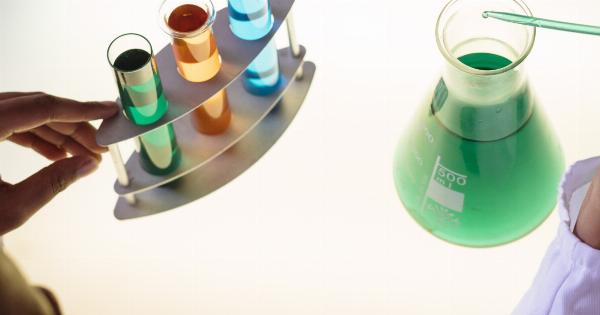Lewy body dementia (LBD) is a type of dementia that affects the brain and leads to a decline in cognitive abilities and motor functions.
The disease is caused by the buildup of abnormal proteins in the brain called Lewy bodies, which interfere with normal brain function. Robin Williams, the celebrated actor and comedian, was diagnosed with LBD after his death in 2014.
His struggle with the disease brought attention to the devastating effects of LBD and raised awareness about the urgent need for research and treatment options. In this article, we will discuss the symptoms, diagnosis, and treatment options for Lewy body dementia, as well as the impact of the disease on those affected.
What is Lewy Body Dementia?
Lewy body dementia is a progressive brain disease that affects an estimated 1.4 million people in the US alone. It is the second most common form of dementia after Alzheimer’s disease.
The disease is named after Lewy bodies, which are abnormal protein deposits that build up in certain areas of the brain. Lewy bodies are made up of a protein called alpha-synuclein, which is also found in brain cells affected by Parkinson’s disease.
The buildup of Lewy bodies in the brain leads to a disruption of normal brain function, causing symptoms such as memory loss, confusion, visual hallucinations, and movement disorders.
What are the Symptoms of Lewy Body Dementia?
The symptoms of Lewy body dementia can vary from person to person and may fluctuate in severity over time. Some of the most common symptoms include:.
- Memory loss
- Confusion
- Visual hallucinations
- Difficulty with cognition and problem-solving
- Changes in mood and behavior
- Depression and anxiety
- Sleep disturbances
- Changes in appetite and weight
- Tremors and movement disorders
People with Lewy body dementia may also experience periodic loss of consciousness, falls, and seizures. These symptoms can make it difficult for individuals to perform daily activities and can lead to a significant reduction in quality of life.
How is Lewy Body Dementia Diagnosed?
Diagnosing Lewy body dementia can be challenging, as the symptoms of the disease are similar to those of other types of dementia and may overlap with Parkinson’s disease.
It is essential to receive a correct diagnosis to ensure appropriate treatment and management of the disease. A diagnosis of LBD is typically made by a physician who specializes in neurology and dementia care. The diagnosis process will typically involve:.
- A comprehensive medical history and physical examination
- Assessment of cognitive and memory function
- Imaging studies, such as magnetic resonance imaging (MRI) and computed tomography (CT) scans, to detect the presence of Lewy bodies in the brain
- Neuropsychological testing to evaluate cognitive and behavioral function
- Blood tests to rule out other hysical conditions that may cause similar symptoms
How is Lewy Body Dementia Treated?
While there is no cure for Lewy body dementia, there are treatments available that can help manage the symptoms of the disease. The treatment approach will depend on the individual’s specific symptoms and needs.
Some of the most common treatments for LBD include:.
- Medications to manage cognitive and behavioral symptoms, such as cholinesterase inhibitors and antipsychotic drugs
- Physical therapy to maintain mobility and improve muscle strength and tone
- Occupational therapy to help with activities of daily living, such as bathing, dressing, and eating
- Speech therapy to help with communication and swallowing difficulties
- Supportive care to address nutritional and hydration needs
In addition to these treatments, caregivers and family members of individuals with Lewy body dementia play a critical role in providing support and care for their loved ones.
Education about the disease, managing medications, and accessing community resources can help caregivers provide the best possible care for individuals with LBD.
The Impact of Lewy Body Dementia on Patients and Caregivers
Lewy body dementia can have a profound impact on both individuals with the disease and their caregivers.
For patients, the disease can lead to a loss of independence, reduced quality of life, and an increased risk of complications such as falls and infections. For caregivers, the disease can be emotionally and physically draining, often requiring around-the-clock care and support.
The challenges of caring for someone with LBD can put caregivers at risk for burnout, mental health problems, and other health issues. Seeking out support from community resources and joining support groups can help caregivers manage the stress and challenges of caring for someone with LBD.
The Importance of Research and Fundraising for Lewy Body Dementia
Despite the devastating effects of Lewy body dementia, research and treatment options for the disease remain limited.
With the aging population and an increasing prevalence of dementia, there is a critical need for more funding and support for research aimed at understanding and treating LBD. Philanthropic organizations such as the Lewy Body Dementia Association and the Michael J. Fox Foundation are working to raise awareness of the disease and fund research to improve diagnosis and treatment options.
The support of individuals, families, and communities is essential in the fight against Lewy body dementia.
Conclusion
Lewy body dementia is a progressive brain disease that affects millions of people worldwide. The disease can have a profound impact on individuals with LBD and their caregivers, leading to a loss of independence and reduced quality of life.
While there are treatments available to manage the symptoms of LBD, there is still much to learn about the disease and how it can be prevented and treated. By raising awareness and supporting research efforts, we can work towards a better understanding of Lewy body dementia and improve the lives of those affected by the disease.




























